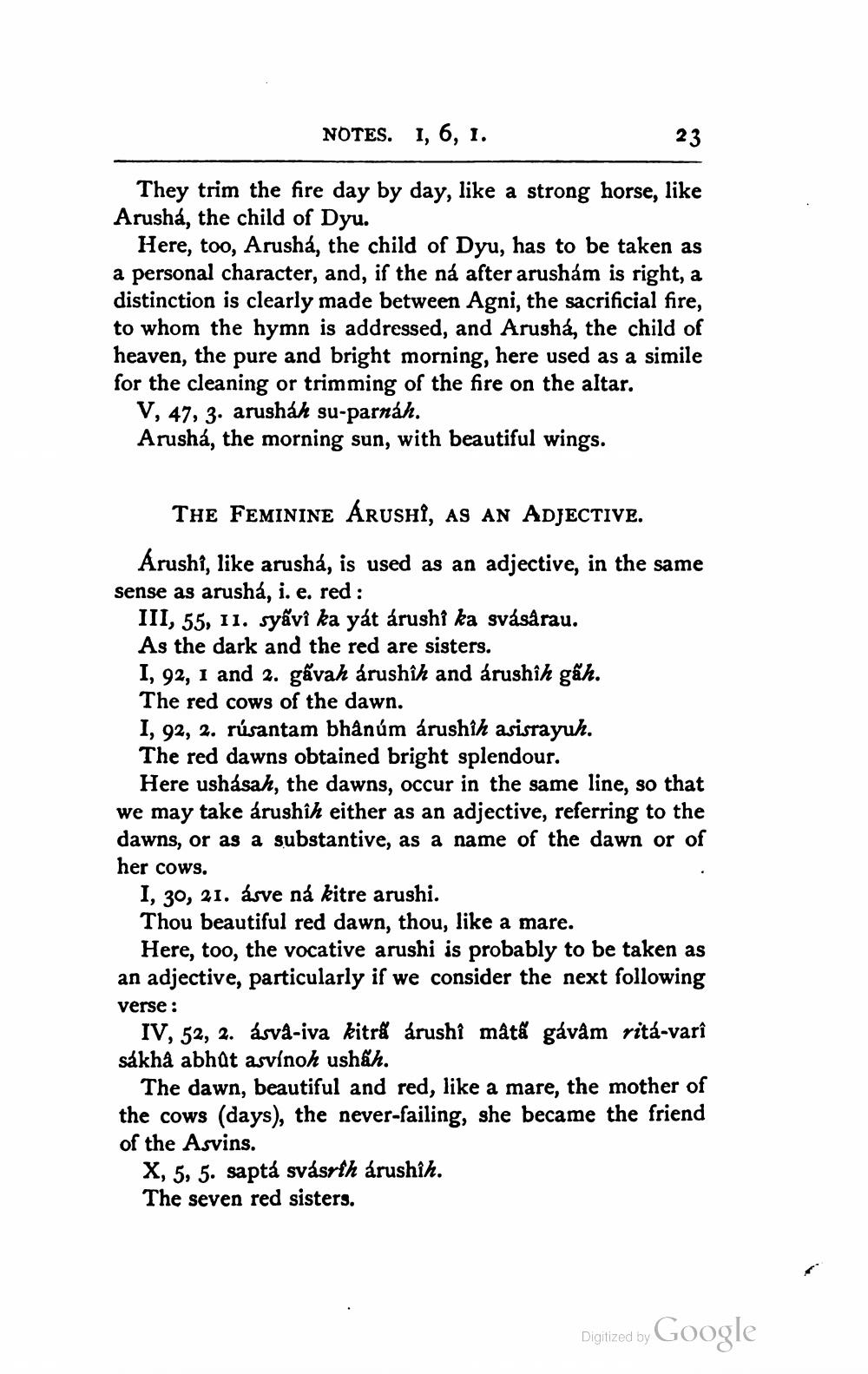________________
NOTES. I, 6, 1.
23
They trim the fire day by day, like a strong horse, like Arusha, the child of Dyu.
Here, too, Arusha, the child of Dyu, has to be taken as a personal character, and, if the ná after arushám is right, a distinction is clearly made between Agni, the sacrificial fire, to whom the hymn is addressed, and Arusha, the child of heaven, the pure and bright morning, here used as a simile for the cleaning or trimming of the fire on the altar.
V, 47, 3. arusháh su-parnah. Arusha, the morning sun, with beautiful wings.
THE FEMININE ARUSHI, AS AN ADJECTIVE. Arushí, like arusha, is used as an adjective, in the same sense as arusha, i. e. red:
III, 55, 11. syâvî ka yát árushi ka svásárau. As the dark and the red are sisters. I, 92, 1 and 2. gåvah árushîh and árushîh gâh. The red cows of the dawn. 1, 92, 2. rúsantam bhånúm árushih asisrayuh. The red dawns obtained bright splendour.
Here ushásah, the dawns, occur in the same line, so that we may take árushîh either as an adjective, referring to the dawns, or as a substantive, as a name of the dawn or of her cows.
I, 30, 21. ásve na kitre arushi. Thou beautiful red dawn, thou, like a mare.
Here, too, the vocative arushi is probably to be taken as an adjective, particularly if we consider the next following verse:
IV, 52, 2. ásvá-iva kitra árushî mâtă gávam ritá-varî sákhå abhùt asvinoh ushah.
The dawn, beautiful and red, like a mare, the mother of the cows (days), the never-failing, she became the friend of the Asvins.
X, 5, 5. saptá svásrth árushîh. The seven red sisters.
Digitized by Google




